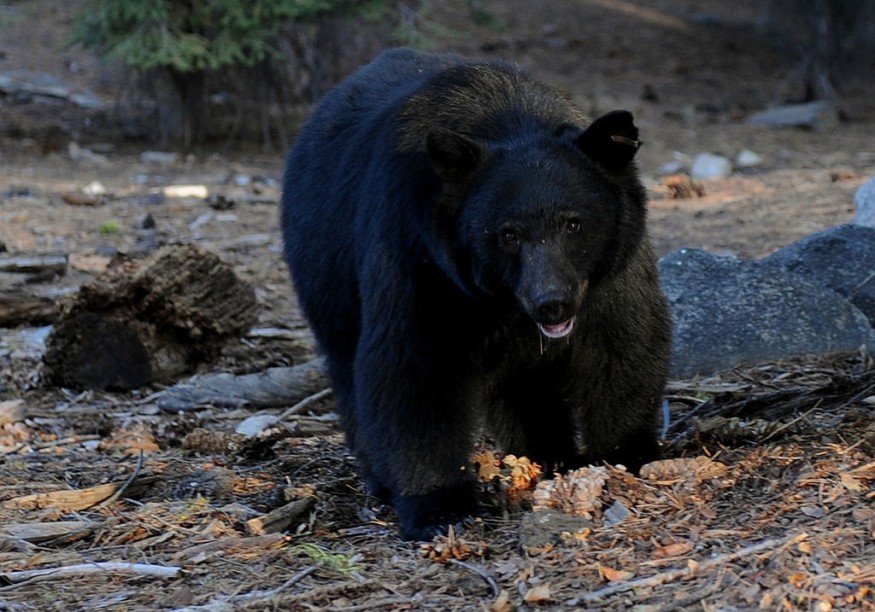Officials at the Tennessee Wildlife Resources Agency announced recently that a 500-pound black bear living close to a Tennessee college had been captured after it became very comfortable near people and human food.
NBC News Digital reported that the bear, living close to a Greeneville-based Presbyterian college known as Tusculum University, has turned habituated to human and unnatural foods and was relocated to a remote place of the Cherokee Natural Forest, according to the TWRA in a post on Facebook. The bear had been near the college for a few years because of its regular access to garbage, pet food, and birdseed.
After it had ramped up its activity and property damage in 2021, wildlife officials decided to capture the huge animal, but they failed to do so as the bear had changed its travel patterns.

Bigger and Heavier Than Usual
The agency said recent activity specified that the bear was back to its old ways, and officers were able to tranquilize it. The Greenville Fire Department helped transport the bear to the forest. Over time, as mentioned, it had become habituated to human and unnatural food.
In the statement, Wildlife Sgt. David Carpenter said that the bear had "regular access to garbage, birdseed, and pet food" and had been on the site for a few years, but it ramped up its activity and property damage a year ago.
The fire department in Greeneville assisted the transfer of the bear by using some specialized equipment to handle the animal's size and weight, a similar International Business Times report said.
According to the agency's website, the black bear, was bigger than the standard size of its kind. Weights usually range from 125 to 600 pounds for adults.
Also, on its website, TWRA specified that as bears expand into places with suitable habitats, it is essential for communities to learn how to coexist with them. Typically, black bears had once roamed all over Tennessee.
Garbage-Eating Bear
In June 2020, Castanet.net reported conservation officers trying to catch the black bear that was roaming the Foothills area of Vernon.
According to the report, the bruin was so brazen as it walked into a home. The homeowner made a noise and tried to scare the animal away. However, she said, it was seen eating out of trash cans that night.
The resident described the brownish bear as having become habituated to garbage as some people in their neighborhood put their garbage out during the night before pickup, or leave garbage cans next to their home amidst several warnings not to do so.
This 2020 report indicated that a garbage bear cannot be rehabilitated and must be destroyed. The homeowner said she drove past there in the evening of Saturday, and Monday was garbage pickup, and everyone there had their garbage out.
An Initiative to Keep Both Bears and People Safe
For several years, conservation officers have been advising people to secure their garbage and put it out only in the morning for collection. Warnings were issued, and collection officers were beginning to hand out fines in an initiative to keep both bears and people safe.
The resident said it is law, not to put garbage out until the morning of pickup. It should be stored where bears cannot get to it. Bear-proof garbage is one way to keep bears away, although people can build bear-proof enclosures for the garbage or have it stored in the garage.
A report about the black bear is shown on WBIR Channel 10's YouTube video below:
RELATED ARTICLE : 500-Pound Black Bear Named 'Hank The Tank' Ransacks 28 California Homes; 'Euthanasia' Considered
Check out more news and information on Animals in Science Times.
© 2025 ScienceTimes.com All rights reserved. Do not reproduce without permission. The window to the world of Science Times.










